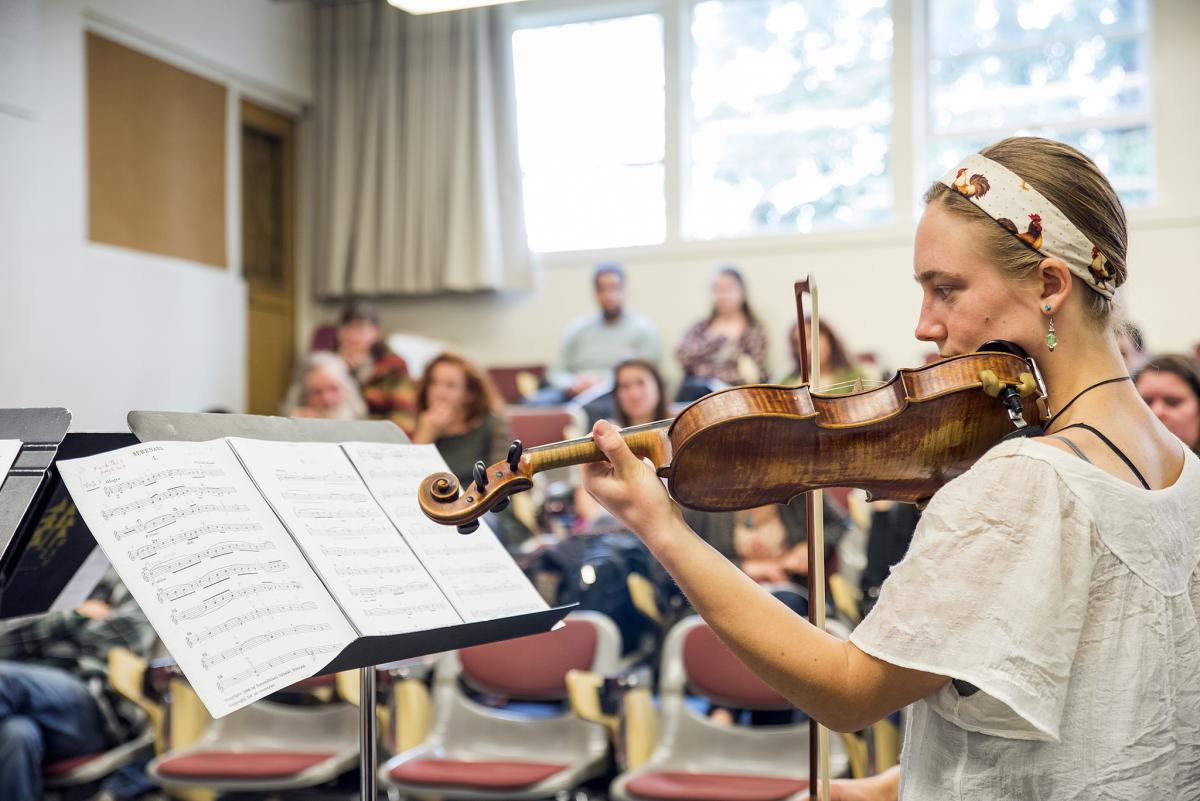Student Learning Outcomes

Throughout the history of humanity, music has been one of the most universal, essential, and enduring of human endeavors. Through the study of the art of music, individuals can be empowered to deeply explore, understand, and give form to their own intellectual, emotional, and creative energies and impulses. The study of music is therefore both an appropriate and an indispensable component of the educational development of university students, serving the mission of Cal Poly Humboldt in unique and powerful ways.
The Cal Poly Humboldt Music Program immerses students in a hands-on exploration of diverse musical traditions and experiences, integrating musical performance, music scholarship, and the connections between music and technology. We cultivate musical skills, encourage musical expression, and nurture musical creativity to empower students to achieve their highest artistic, scholarly, and professional potential.
Vision
We commit to being a program where students from diverse backgrounds are able to thrive. We equip students to understand how music has connections to issues of equity and inclusion, and how exploring music can enable us to develop more just societies.
We support music for all: university and community, performers and listeners, beginners to advanced musicians, and music from many cultures. We welcome musicians of all ages to participate in music-making and learning events on campus. We also embrace opportunities to partner with schools and community arts organizations within our region.
We value excellence and teach our students how to effectively strive for constant improvement. We endeavor to support each student’s interests, needs, and personal growth during their studies.
We equip students to engage with music as a lifelong practice. Our students explore the role of music in today’s world and consider how music and musical skills can address the world’s challenges.
We support explorations of music as it relates to diverse cultures, technology, and other disciplines. We foster creativity to support musical growth, problem-solving, and the development of human potential.
Music Program Learning Outcomes
Students will demonstrate the ability to hear, identify, read, write, and work conceptually with the elements of music – rhythm, melody, harmony, and structure.
Students will demonstrate understanding of a wide selection of musical literature representing principal eras, genres, and cultural sources.
Students will demonstrate ability to perform a wide variety of musical styles in areas appropriate to the student’s needs, interests, and degree path.
Students will demonstrate the ability to write clearly and effectively
